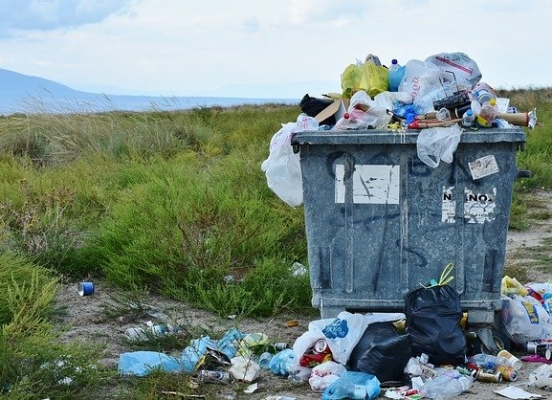Plastic Waste Management
Plastic – a versatile, durable, non-degradable, and cheap-to-produce product – was considered a scientific marvel when it was first produced synthetically in 1907. A century later, over 400 million tonnes of plastic are produced every single year.
This over-reliance on plastic and its derivatives has had unimaginable consequences on the health of our planet. More than half the plastic that’s produced every year is single-use and less than one-fifth of the total plastic produced has been recycled.
Plastic Waste In India
India, being one of the biggest economies and consumers of plastic in the world, has more than 20,000 plastic industries producing plastic at any given time. In the last 70 years, more than 8.3 billion tonnes of plastic have been produced and more than 80% of this has been discarded as waste!
This makes having efficient plastic waste management in India an absolute necessity. Today, companies like Saahas Zero Waste are leading from the front in implementing the goal of effective recycling in India.
By working with offices, commercial establishments, and tech parks to houses, residential communities, and institutions – Saahas Zero Waste, one of the frontrunners in plastic waste management in India, is redefining the way plastic waste is managed.
What Is Plastic Waste Management?
As plastic products have varied applications, they’ve become an integral part of everyday life. Naturally, after their brief use, they’re discarded. Plastic, like every other waste, needs to be disposed of and managed in the right way.
This is where Plastic Waste Management comes in. In short, plastic waste management is the efficient and precise conversion of plastic waste into innovative products that are better, environmentally-friendly, and cost-effective.
Advantages of implementing plastic waste management:
- Reduced environmental pollution
- Reduced virgin plastic production
- Reduced toxic waste generation
- Localized employment opportunities
- Energy savings
- Protection of animal species
Reduce, Reuse, Recycle – How It’s All Done
Saahas Zero Waste collects all dry waste including all types of plastic products from multiple client locations. This waste is taken to an on-site location where it is semi-sorted.
The semi-sorted waste moves on to a Materials Recovery Facility where it is further sorted into specific waste categories such as PET, MLP, HDPE, LDPE, etc.
Every type of plastic waste that’s categorized is then made into bales and prepared for transport to authorized end destinations. These destinations can be recycling units or cement kilns that use low-grade plastic waste as fuel.
Currently in India, over 47% of plastic waste is recycled. To push this number higher, it’s imperative that we reduce consumption on one hand while employing the services of companies like Saahas Zero Waste for effective waste management.
To know more, please check Saahas Zero Waste.

